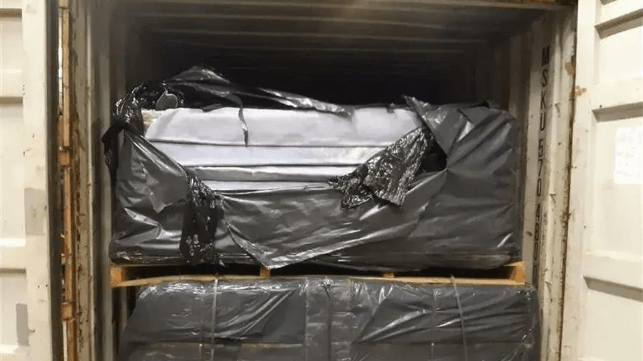Port of Antwerp Sees Success in Fight Against Cocaine Smugglers

Belgium is starting to see success in its relentless war against cocaine smuggling through its seaports following a massive drop in quantities seized last year, though the number of interceptions is on the rise.
In a clear indication that the country is making progress in its fight against South American cartels, Belgian officials announced that they seized 44 tonnes of cocaine at the port of Antwerp in 2024. This is about two-thirds less than the 121 tonnes that were seized in 2023 and 110 tonnes seized in 2022. That year, authorities were catching so much cocaine that they had difficulty incinerating it all.
While the decline in seizures was notable - the first in more than a decade - authorities remain cautious that it is not necessarily a sign of progress. Interceptions remain high, with a majority originating from South America. During the year, a total of 136 seizures were recorded compared to 124 the previous year.
“The quantities we seize in our country are decreasing, but the number of interceptions we make here is increasing,” said Kristian Vanderwaeren, administrator-general of Belgian customs at a news conference. She added that drug traffickers have been spreading their risks by reducing the quantities in order to avoid being caught.
Officials say that drug cartels in South America continue to target the port of Antwerp as an entry point for drugs destined for the lucrative European market. This has seen Antwerp earn the dubious distinction of being Europe's 'cocaine capital' port.
Last year, some 91 tonnes of cocaine destined for Belgium were intercepted in source and transit countries in South America, up from 80 tonnes in 2023. Ecuador, Panama, the Dominican Republic and Colombia continue to be some of the top countries of origin for these smuggling operations.

that matters most
Get the latest maritime news delivered to your inbox daily.
Drug gangs from these countries are becoming more aggressive in their smuggling tactics, with some of the seizures camouflaged as bananas, avocados and coffee, among other goods. Smugglers are also adapting new tactics like the use of chemical processes to disguise cocaine in other materials, which complicates detection efforts.
To fight back, Belgium has been working with other European Union countries under the European Ports Alliance to explore better ways to protect logistics hubs from being used as entry points for drugs originating from South America. The Belgium government invested $72 million in recent years to boost container checks at the port of Antwerp, buying scanning equipment and recruiting more officers.
